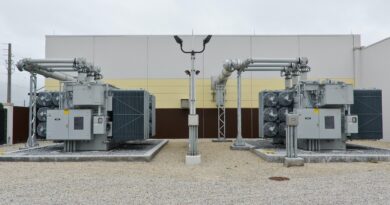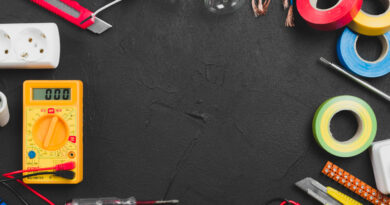Unveiling Electrical Safety Inspections in Noida: Protect Your Space
Introduction
In today’s modern world, electricity plays a crucial role in our daily lives. It powers our homes, offices, and businesses, making it an essential utility. However, electrical systems can pose potential hazards if not properly maintained and inspected. This article aims to shed light on electrical safety inspections in Noida, India, emphasizing the importance of protecting your space from electrical risks.
Table of Contents
- Importance of Electrical Safety Inspections
- Understanding Electrical Safety Standards
- Common Electrical Hazards
- Benefits of Regular Electrical Safety Inspections
- Hiring a Professional Electrical Safety Inspector
- Steps Involved in Electrical Safety Inspections
- Key Components Checked During Inspections
- Electrical Safety Tips for Homeowners and Businesses
- Signs Indicating the Need for Electrical Safety Inspections
- Frequently Asked Questions (FAQs)
- Conclusion
1. Importance of Electrical Safety Inspections
Electrical safety inspections are crucial for ensuring the safety and well-being of individuals and properties. These inspections help identify potential electrical hazards, prevent accidents, and reduce the risk of fire or electric shock. By regularly conducting electrical safety inspections, you can protect your space and ensure compliance with electrical safety standards.
2. Understanding Electrical Safety Standards
To maintain safety and prevent electrical accidents, various electrical safety standards have been established. These standards outline guidelines, codes, and regulations that govern the design, installation, and maintenance of electrical systems. In Noida, the electrical safety standards are set by relevant authorities to ensure safe electrical practices.
3. Common Electrical Hazards
Electricity can present several hazards if not properly managed. Some common electrical hazards include faulty wiring, overloaded circuits, outdated electrical systems, exposed wires, and damaged electrical appliances. These hazards can lead to electrical shocks, electrocution, or even electrical fires.
4. Benefits of Regular Electrical Safety Inspections
Regular electrical safety inspections offer numerous benefits. They help identify potential issues or hazards before they escalate into major problems. By addressing these issues promptly, you can prevent costly repairs, improve electrical system efficiency, and enhance overall safety within your space.
5. Hiring a Professional Electrical Safety Inspector
When it comes to electrical safety inspections, it is advisable to hire a professional inspector. These experts possess the knowledge, skills, and tools necessary to conduct thorough inspections. They are well-versed in electrical safety standards and can accurately identify any potential hazards or non-compliance issues.
6. Steps Involved in Electrical Safety Inspections
Electrical safety inspections typically follow a systematic process to ensure comprehensive evaluations. The steps involved in these inspections may include the following:
- Pre-inspection assessment
- Visual inspection
- Testing and measurement
- Documentation of findings
- Recommendations for repairs or improvements
7. Key Components Checked During Inspections
During an electrical safety inspection, several key components are thoroughly examined to assess their condition and compliance with safety standards. These components may include electrical panels, wiring systems, grounding systems, electrical fixtures, surge protection devices, and overall system functionality.
8. Electrical Safety Tips for Homeowners and Businesses
While regular inspections are essential, there are additional measures homeowners and businesses can take to maintain electrical safety. Here are some valuable tips:
- Avoid overloading electrical circuits
- Keep electrical appliances away from water sources
- Use surge protectors for sensitive electronic devices
- Install ground fault circuit interrupters (GFCIs) in wet areas
- Hire licensed electricians for installations and repairs
- Routinely check for damaged or frayed wires
- Replace outdated or malfunctioning electrical appliances
9. Signs Indicating the Need for Electrical Safety Inspections
Certain signs indicate the need for immediate electrical safety inspections. These signs may include frequent circuit breaker trips, flickering lights, burning odors, discolored outlets, or persistent electrical shocks. If you notice any of these signs, it is crucial to schedule an inspection promptly.
10. Frequently Asked Questions (FAQs)
Q1: How often should electrical safety inspections be conducted? A1: The frequency of electrical safety inspections depends on various factors, such as the age of the property and its electrical system. Generally, it is recommended to have inspections every 3-5 years or when significant electrical work has been done.
Q2: Can I perform electrical safety inspections myself? A2: It is advisable to hire a professional electrical safety inspector for accurate and thorough evaluations. They have the expertise to identify potential hazards that may go unnoticed by untrained individuals.
Q3: What should I expect during an electrical safety inspection? A3: During an inspection, the inspector will assess your electrical system, identify potential hazards, check for compliance with safety standards, and provide recommendations for improvements or repairs.
Q4: How long does an electrical safety inspection typically take? A4: The duration of an inspection depends on the size and complexity of the electrical system being evaluated. On average, inspections can range from 1-3 hours.
Q5: Can an electrical safety inspection reduce my insurance premiums? A5: Some insurance companies offer discounts on premiums for properties that have undergone electrical safety inspections. Check with your insurance provider to see if they offer such incentives.
11. Conclusion
Electrical safety inspections are vital for safeguarding your space from potential electrical hazards. By proactively addressing any issues or non-compliance with safety standards, you can ensure the well-being of occupants and prevent property damage. Remember to hire a professional electrical safety inspector and follow recommended electrical safety practices to protect yourself and your property.




